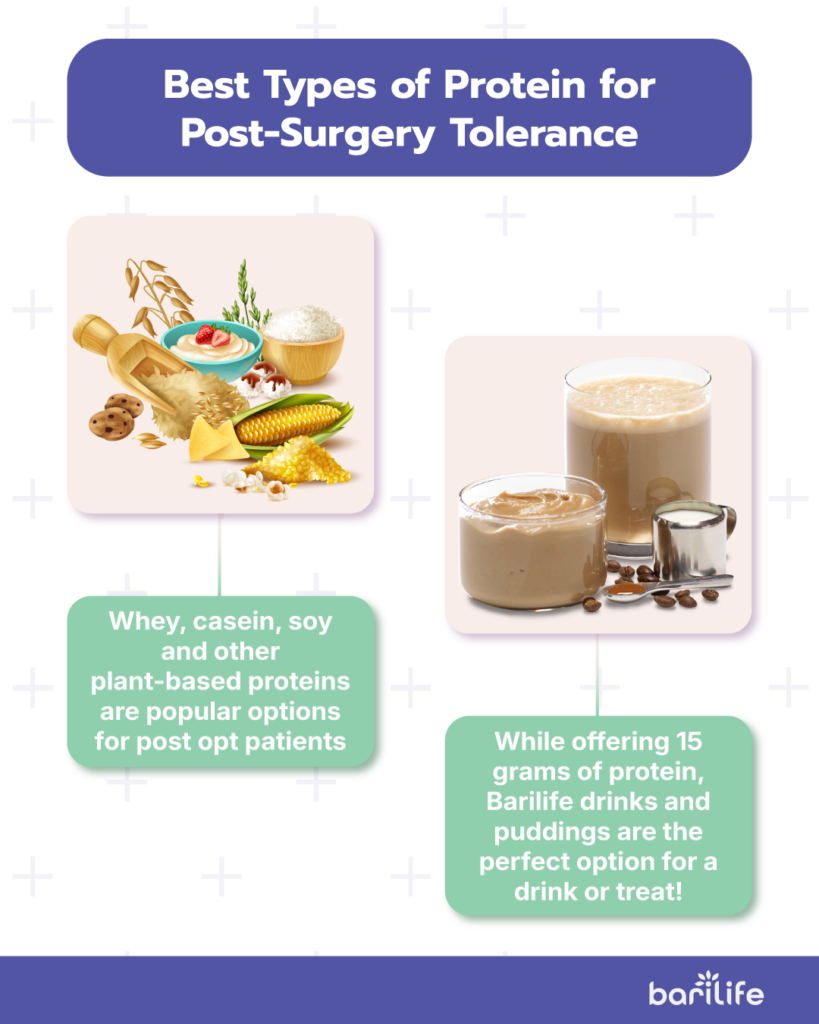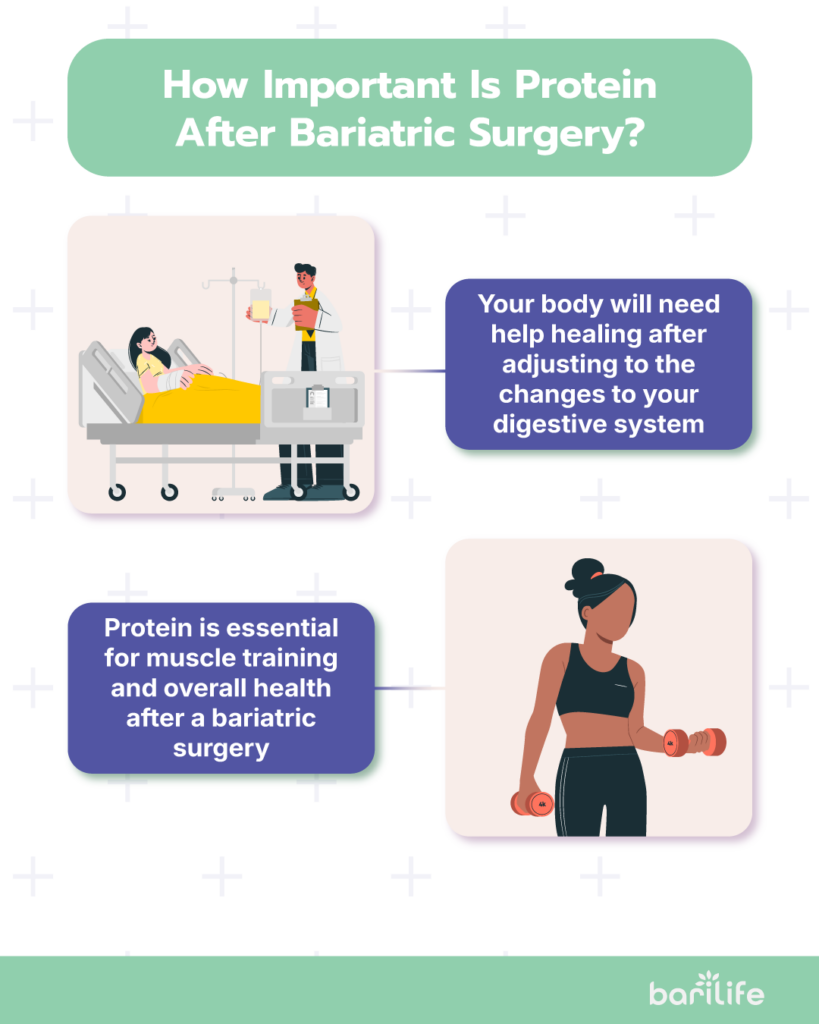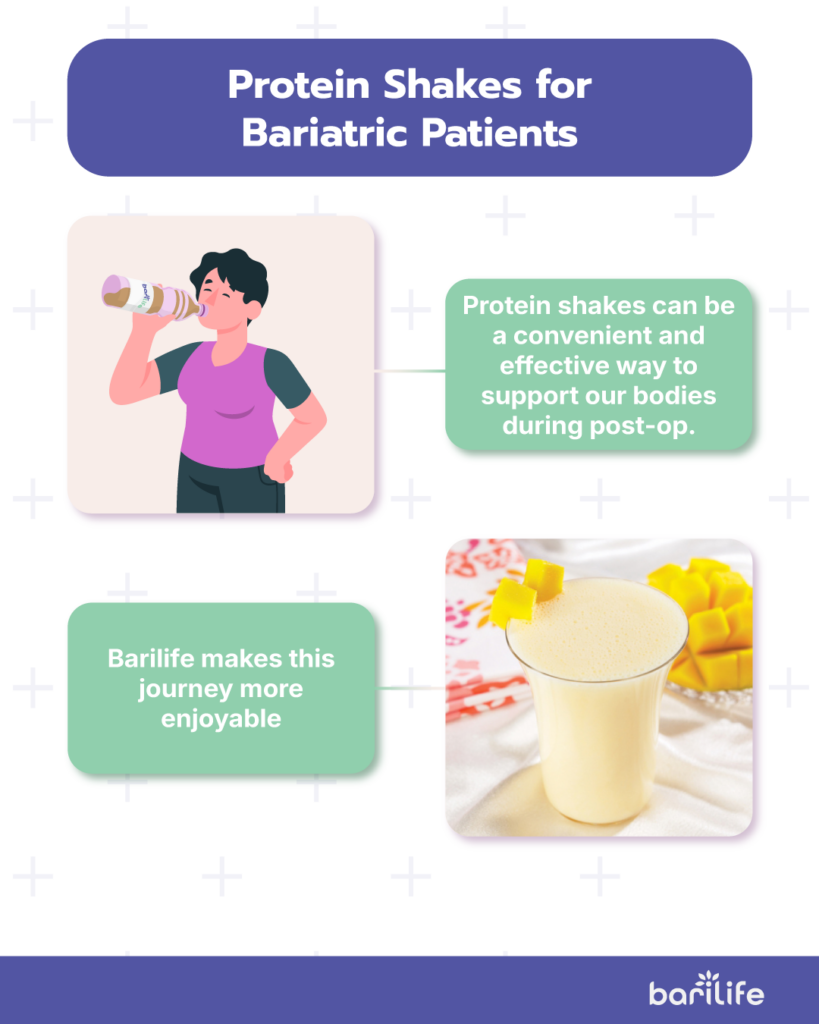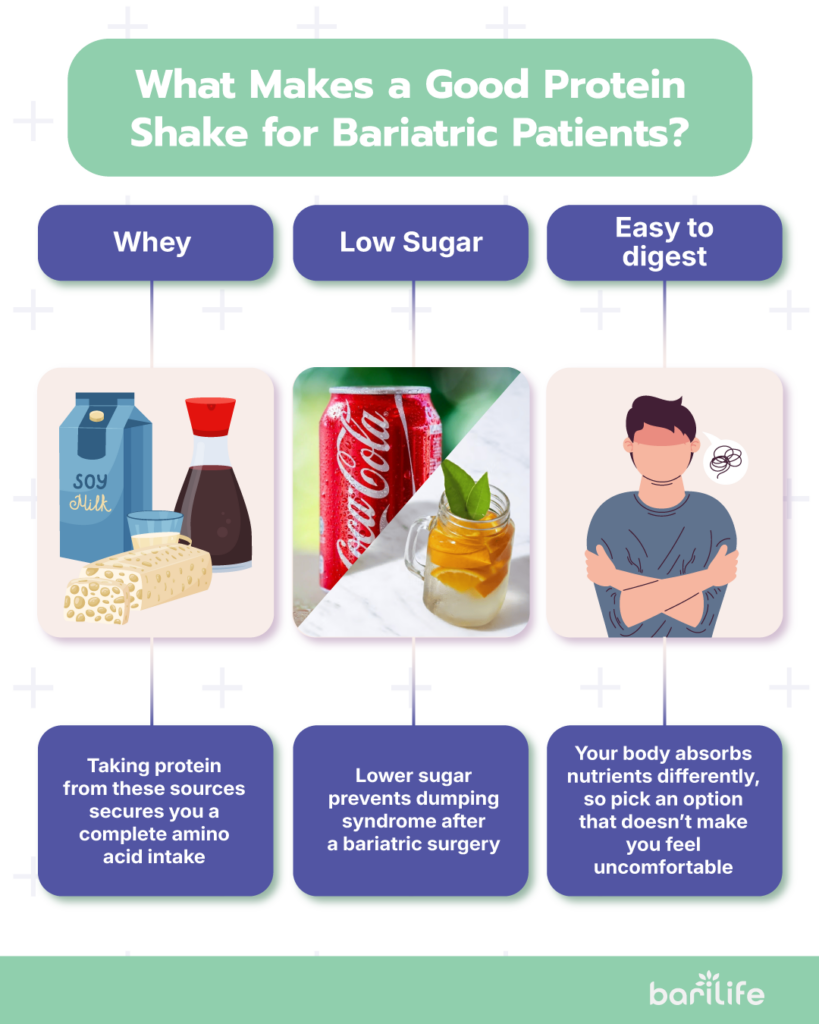Key Takeaways
- Protein shakes after bariatric surgery are a great way to support your body’s healing and maintain lean muscle mass.
- Choosing the right protein shakes involves choosing options with high-quality protein that’s low sugar and easily digestible.
- Prioritizing protein intake with each meal and snack helps you meet your daily protein needs.
Bariatric surgery significantly changes your body, as well as how you eat.
After surgery, it’s important to make sure you are eating plenty of protein to support your weight loss goals and your body while it heals.
We’ve put together this complete guide on what makes a good protein shake after bariatric surgery, the reasons why is protein so important after bariatric surgery, when you should add protein shakes to your diet, and more.
Table of Contents
What Makes a Good Protein Shake for Bariatric Patients?
Knowing what to look for when exploring protein shake options after bariatric surgery is important.
First, you want to make sure the protein comes from a high-quality source, such as whey, casein, or soy. These proteins are “complete,” meaning they provide all nine essential amino acids necessary for recovering from surgery and maintaining your muscle mass.
Second, you’ll want to make sure you select a protein shake that’s low in sugar and carbohydrates. This helps prevent dumping syndrome, a common concern for people who’ve had bariatric surgery, which causes discomfort after eating sugary foods.
Lastly, find a shake that you can easily digest. After surgery, your altered digestive system digests and absorbs nutrients differently. Choose a shake that doesn’t cause you to have bloating or discomfort.

How Important Is Protein After Bariatric Surgery?
Protein is vital to your recovery and long-term health after bariatric surgery.
How much protein after bariatric surgery is a common question, and the answer depends on several factors
Your body’s ability to heal depends on protein for tissue repair and wound healing. It also helps you maintain your muscle mass during rapid weight loss.
It’s common for people to experience muscle loss after surgery while they are dropping weight quickly. Consuming enough protein helps you lose fat rather than lean muscles.
Protein is also a satiating nutrient, meaning it helps you feel full for longer. This can help with your weight management by reducing hunger and preventing mindless snacking between meals.
What happens if you don’t get enough protein after bariatric surgery? Without enough protein, you may experience fatigue, muscle loss, and delayed healing, which can impact your recovery and long-term results.

When Should Protein Shakes Be Added to the Diet After Bariatric Surgery?
One of the main benefits of protein shakes is they can be added into your diet quickly after surgery.
Typically, they are introduced during the liquid phase of the post-bariatric surgery diet, often within the first week.
The shakes offer a source of easily digestible protein before solid foods are permitted.
As you transition to the soft food stage, protein shakes are still an important tool for ensuring consistent protein intake while you continue to heal.
If you notice intolerance symptoms, such as bloating or gas, talk with your healthcare provider, as some protein shake ingredients (like lactulose) can cause digestive issues while you recover.
Your healthcare provider may have an alternative protein shake for you to try.
Best Types of Protein for Post-Surgery Tolerance
Some sources of protein are harder to digest and can cause uncomfortable effects like bloating and gas.
Here are some of the most popular, easy-to-digest protein choices after bariatric surgery.
- Whey protein isolate: This is a popular choice as it’s easily digested, is lactose-free, and offers a complete amino acid profile.
- Hydrolyzed protein: This protein is also popular as it’s pre-digested, making it an excellent option for those with sensitive stomachs or who have trouble digesting other protein sources.
- Plant-based proteins: Plant-based proteins like pea and soy protein can be great alternatives for people who are sensitive to dairy or wish to avoid animal-based proteins.
Barilife Instant Protein Drink Bottles are a convenient way to get your necessary protein intake. Each bottle contains a pre-measured protein powder of 15 grams of protein.
All you need to do is add whatever drink you like (water, milk, or juice), shake, and drink. The protein powder is low in sugar and has seven or fewer grams of carbohydrates.
With several flavors like kiwi strawberry, chocolate, aloha mango, and cappuccino, you’ll have plenty of options to choose from.
Barilife Pudding Shakes are also another popular option. These pre-measured pouches contain 15 grams of protein you can mix with either milk or water. If you want a thicker consistency like pudding, simply use less liquid.
The pudding sets right away, so you don’t have to wait around and can enjoy your snack right away. If you have time to let it sit in the fridge for a bit, the consistency becomes like a delicious mousse.
The wide variety of flavors, like banana, strawberry, vanilla, cheesecake, and others, means you change it up each day.

Practical Tips for Maximizing Protein Intake
Here are some tips to help you maximize your protein intake:
- Eat your protein first at each meal to make sure you don’t get full on other foods before getting your protein in.
- Incorporate protein into your snacks throughout the day.
- Spread your protein intake throughout the day rather than eating your daily amount in one meal.
- Keep a food journal or app to track your daily protein intake.
- Choose protein flavors you enjoy to help you remain consistent.
- Find protein sources that are easy to take on the go to help you meet your protein goals on busy days.
Conclusion
Protein shakes are a convenient and important tool to support your body’s healing process and help you maintain your lean muscle mass. They also support your long-term weight loss goals.
Remember to look for a protein shake that’s derived from high-quality protein sources and is low in sugar. It’s also best to find a flavor you enjoy to help you stay consistent.

If you want to learn more, why not check out these articles below:
Resources
Diet and Nutrition After Gastrectomy: What You Should Know. (n.d.) National Cancer Institute.




What are your tips and tricks to post-bariatric success?